We spent 3 weeks with Projects Abroad in Cambodia and while they have had a marine conservation project in the region for a number of years, the current operation on Koh Sdach has only been running for a year. It takes a while for any such organisation to find its feet in a culture that is not used to the people and ideas that such a project brings so at the time of our attending, the majority of the physical effort was on underwater clean-ups and reef surveys – see my earlier blog Diving Cambodia for some of our underwater experiences! However, much discussion and thought is going in to how to benefit the community and area more effectively.
Each week a couple of volunteers will prepare a lesson for the local primary school. This is generally focussed either on learning English or on conservation such as trash, other pollution sources, fishing methods and what’s caught or something specific such as our talk about shark plights (interestingly none of the children showed any fear of sharks at all, even Great Whites). These talks are simple as everything needs to be translated but the idea is to start instilling these important understandings from an early age because getting adults to change their habits of decades is a lot more difficult than giving children the information to help them make better decisions in the future.
There is also a small group of older children (late teens) who are keen to learn more on such issues and come to the Project for an afternoon a week for a more in depth presentation – again, prepared and given by volunteers. They’re called Green Protectors and it’s hoped that other children growing up in the village will join the group in time. Green Protectors also get involved in physical projects such as marine debris clear ups (while they can’t scuba, they enjoy snorkelling and clearing rubbish from shallow reefs). While you can’t clear rubbish from deeper areas, or untangle more fiddly items beyond your reach from the surface in this way, there is still plenty to be done even so close to shore. A Projects Abroad volunteer, Kathryn and I found a loose fishing net one afternoon washed in by the beach and we spent an hour untangling 15 crabs and 3 live fish from the net before collecting it to be disposed of.
- Green Protectors
- Untangling crabs from a drifting net
Despite the focus of education on the children, the adults are being approached too. We were all involved in a clean-up morning at the Buddhist temple where people of all ages collected trash. This was sorted in to rubbish and recyclables. The recyclables are shipped over to the mainland while the rubbish is burned. Unfortunately, this includes many plastic items but currently it is the lesser of various evils for disposal methods. Projects Abroad are considering how to improve on open fires potentially by approaching companies and grants to raise funds for an incinerator and setting up a rubbish collection system. Currently, most rubbish ends up either in the sea, or heaped around until it’s blown in to the sea. The vast majority of non-recyclable plastics are also single-use plastics like polystyrene food trays, drinks cartons/sachets or sweet wrappers and similar. When you consider the school children generally purchase 2 meals a day which will involve a food and drink item each, that’s several hundred single-use plastics consumed each day, just by the school kids!
- Community Clean Up Day, Cambodia
The fishermen are also being shown the impact of trash on their livelihood. When dead fish are found floating under the village, especially when it’s a species the locals catch alive and keep in netted enclosures to grow bigger, autopsies show the usual cause of death is thanks to consumption of microplastics. Showing the locals a dead fish with a stomach full of plastic is a much more direct and effective way of getting their attention than hypothetical scenarios, or issues that are hard for them to consider on a global scale.
Slightly further from home, and in a similar vein to Fiji (and we subsequently learned in Thailand too), Projects Abroad are looking at setting up a mangrove reforestation system on the mainland nearby. Permissions and logistics are still being sought and analysed but as discussed in Mangroves: the roots of the sea, these environments are incredibly important ecosystems in the tropics. We wish them the best of luck in obtaining permission and finding suitable locations to set up a Mangrove nursery and reforestation project!

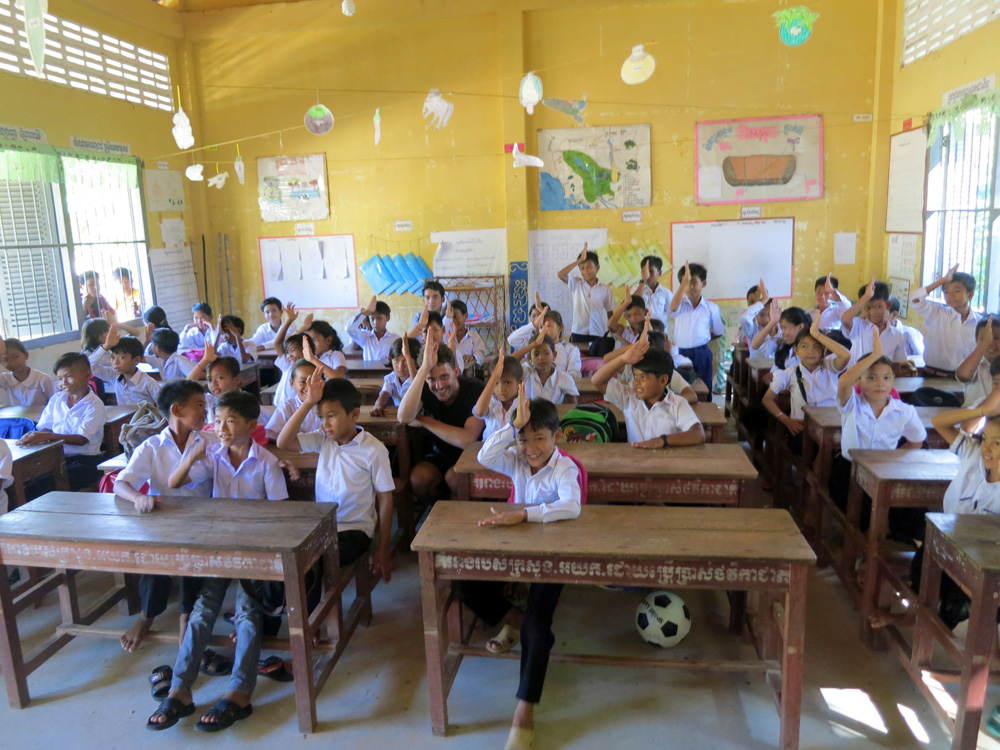
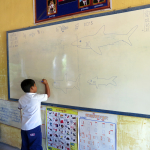
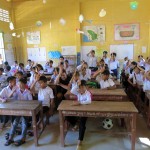
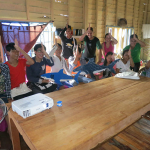
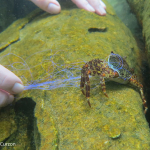
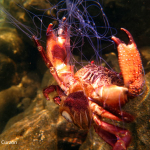
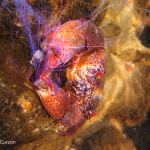
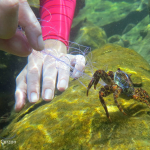
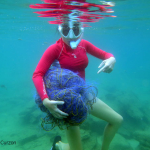
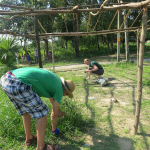
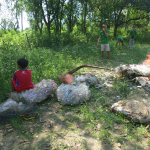
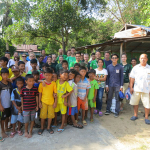
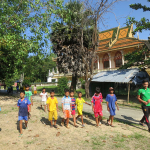

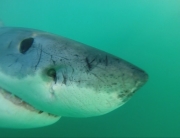

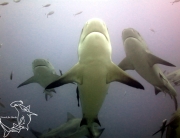
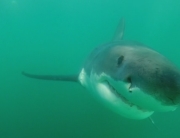










Follow Us